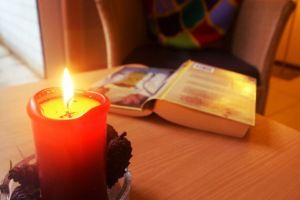News
Hygge is ‘the link’ to Danish happiness, claims new book out today
This article is more than 9 years old.
While many other countries have similar welfare states, conceded ‘The Little Book of Hygge’, it’s the elusive ingredient that pushes Denmark to the top of the happiness charts

Hygge is ingrained in Danish culture, but does it really make Danes the world’s happiest people? (photo: Jedidja)
There are a few things Denmark is known for outside the Scandinavian bubble: open sandwiches, the Little Mermaid, noirish crime series and … hygge. This uniquely Danish concept has recently captured the attention of many – especially following the country’s almost-yearly ranking as the world’s happiest.
Impossible to translate or ignore
Many argue the strong welfare system Denmark has built throughout the years is the cornerstone of the country’s well-being. Not only does it provide its citizens with free healthcare, education and grants, it also keeps the wealth gap among Danes low compared to most other countries.
READ MORE: Increased disparity among Danes
However, the ‘hygge factor’ is increasingly being considered just as beneficial –and the one aspect that distinguishes Danish society from the rest of Scandinavia. The term is almost impossible to translate, with ‘cosy’ its closest synonym. Hygge could mean getting together with friends, playing the guitar in soft candlelight or reading a magazine under fairy lights. Each Dane creates their own definition.
The missing link, claims new book
A new book, ‘The Little Book of Hygge’, which is hitting the shelves today, adds up how much of a contribution candles, hot cocoa and friends make to Danish society being so happy.
“Hygge means intimacy, simplicity and gratitude. The essence of it is the pursuit of everyday happiness, and it is interesting to look at when you consider how deeply ingrained it is in each Dane’s everyday life,” explained Meik Wiking, the author of ‘The Little Book of Hygge’ and CEO of the Happiness Research Institute, to CPH POST.
READ MORE: Inside this Month: This is I, Hamlet the fake Dane
“The welfare model is the main factor that reduces extreme unhappiness in Denmark. However, hygge might be the missing link and the reason why the country ranks better than its neighbours in happiness reports.”
Consistently happier than Sweden
Some might consider it simplistic to conclude that lighting up a few candles and having a friend over for tea contributes to lasting happiness, and Wiking concedes it would mean little without the backbone of the welfare state, employment, health, family and relationships.
“While hygge contributes to happiness, the welfare state is key,” he said. “But its importance mainly lies in how it sets us apart from the rest of the Scandinavian countries.”
Indeed, some of Denmark’s Nordic neighbours have established similarly generous welfare state systems supported by high taxation, but they consistently rank worse in happiness reports. Hygge is therefore what might ultimately differentiate the Danes from the Swedes for example.
READ MORE: Crazier than Christmas: Julehygge!
With the cold and gloomy days of the Scandinavian winter approaching, Wiking’s book could provide helpful suggestions on how to cope with the increasing darkness and lower temperatures in the coming months.










































